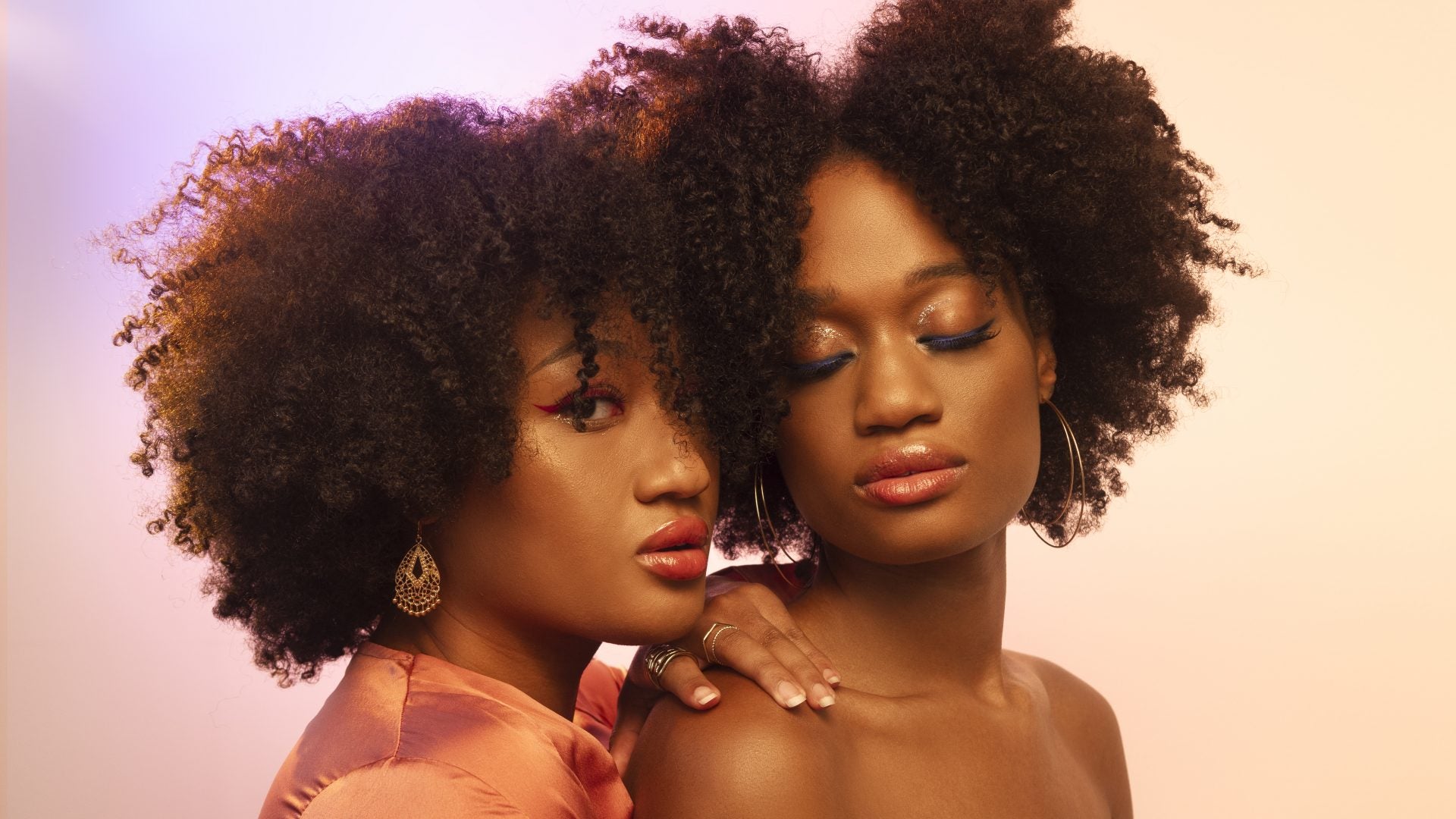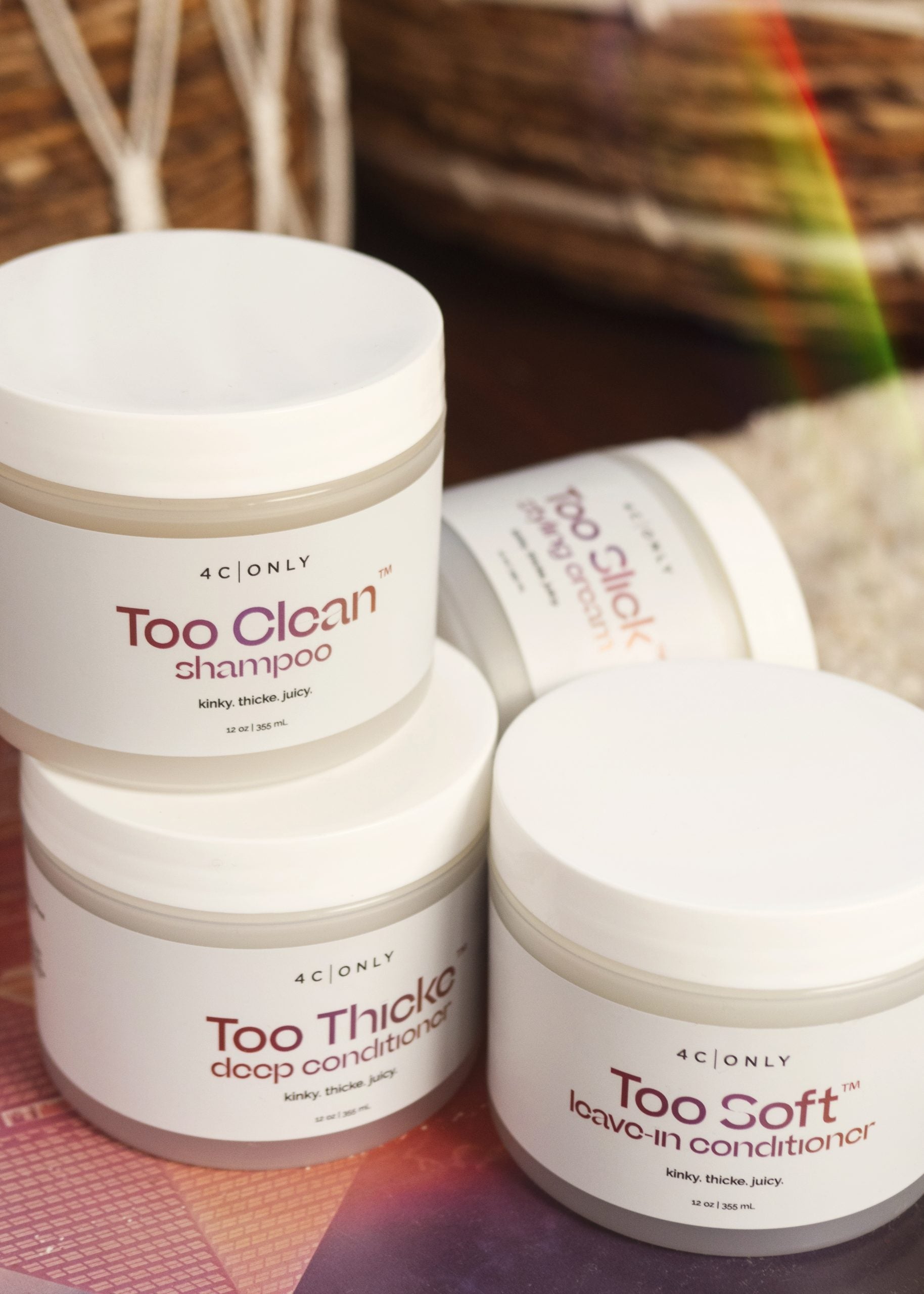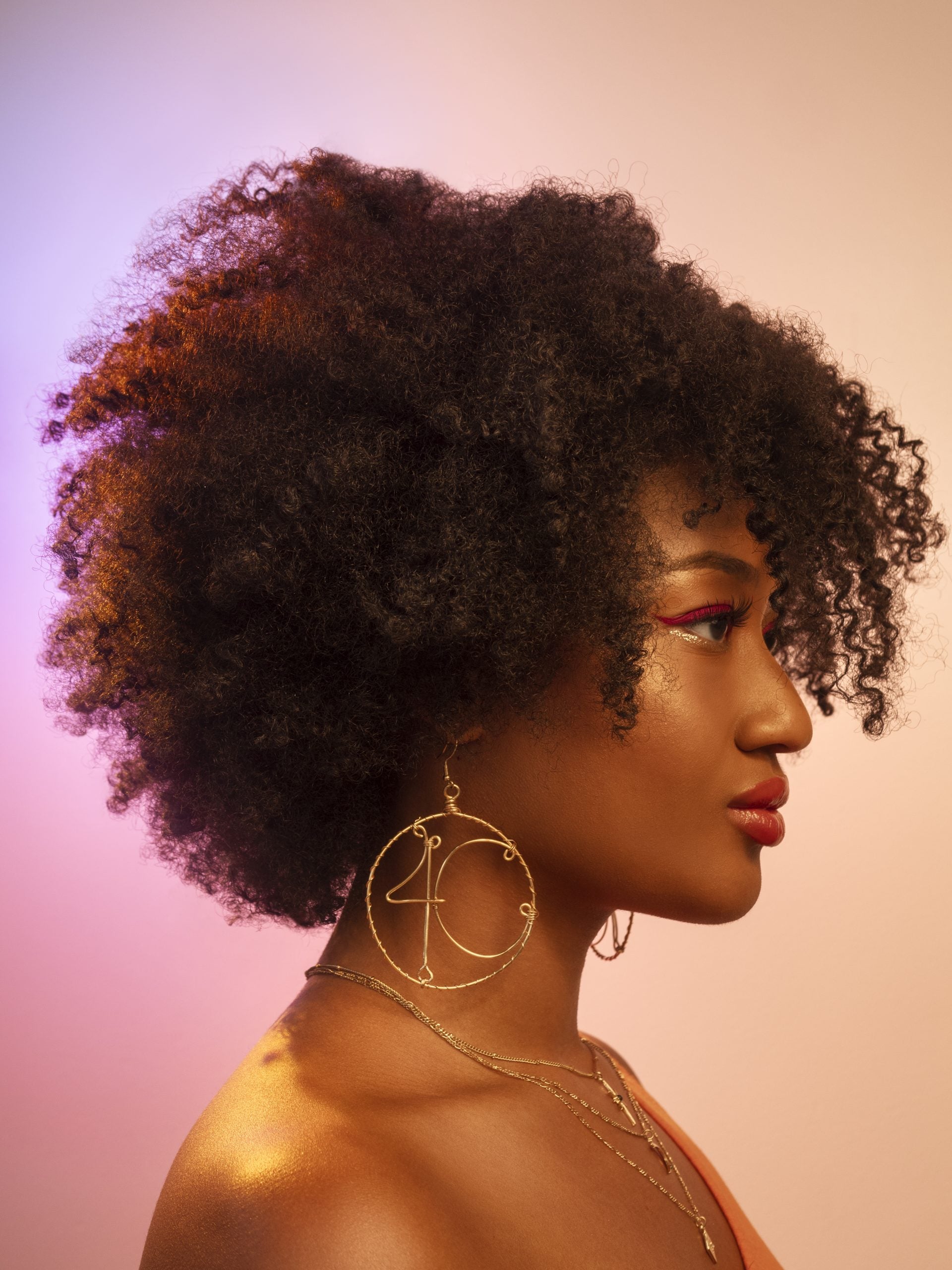
While natural haircare brands tend to pride themselves on inclusivity of hair textures, the needs of 4C textures are often excluded from that narrative. But not anymore. 4C Only, the only 4C specific haircare brand on the market has just launched, and their mission exceeds so much more than just curl health.
“We’re really shifting that narrative surrounding 4C hair, Alicia Ferguson, 4C ONLY chief marketing officer tells ESSENCE. “Everyone has a story that’s been told to them and 4C hair has its own unique story too. Many have heard it’s too dry, it’s too nappy or it’s too kinky. We’re just giving 4C women the opportunity to reclaim it and make it their own.”
To ensure that the product, formulated by a Black, female chemist, was efficacious, they partnered with Daryce Tolliver, a prominent New York City hairstylist and expert in natural hair. “As someone who touches so many textures, it’s refreshing that these products actually do what they say they’re going to do. 4C Only has such hydrating formulas, but also cleans the hair very well and that’s a hard thing to find. I’ve been in the industry for about seven years and shampoos are probably the biggest question mark for a lot of the girls. A lot of people say that shampoos are drying so the fact that this shampoo was designed in a thicker consistency is such a game-changer. I can appreciate that the product is really formulated in a way that’s highly concentrated incorporating lot of organic oils that actually coat the hair making it stronger.” The packaging is also worth mentioning. Recognizing that naturals use product in larger amounts, all containers have an open top, allowing for easy scooping and dispensing.

And while the product itself is important, the impact that 4C Only is having past the science of hair is proving even more powerful. “Even in the pandemic, I see about 30 women a week, and the majority of my clientele is of a higher texture,” Tolliver says. “My clients will tell me, ‘I know you’re working with this brand and we love it, and the product is great, but I’m happy to see myself on this packaging. I think that what it’s creating is a different narrative and you don’t even realize how powerful that is.”
Ferguson says that way the goal. “We’re just scratching the surface with the products,” she emphasizes. “More importantly, we’re instilling confidence in women and the generation after us. We have a lot of trauma that’s attached with our hair. We’re working so that young girls won’t have that. I’m so excited for kids to grow up with a brand like this.”







Ferguson recognizes, however, that many small Black businesses have not be allotted the same opportunities for exposure. “It’s definitely harder for black businesses to secure capital, especially venture capital,” she says. “So we’re fortunate that we’re a privately owned company right now so we had funding to be able to come to market with this. We’ve also been in the beauty industry for a few years already with other products that we have, so it was great that we were able to take those learnings that we had from the other businesses that we ran and be able to put it into this.”

4C Only is also creating spaces for 4C women to share their stories amongst each other, holding public, virtual townhalls for whoever is in need of a safe space. “I listen to women talk for hours and you really don’t realize how much trauma is held there in their hair experiences, especially with Black women,” Tolliver says.
She continues: “Hair is the one accessory you don’t take off, but it how it grows out your head is how it grows out, you can’t change it. So it’s this kind of conflict of identity. Sometimes what I’m finding with women where is they don’t necessarily love their texture but I want to. It feels like this conflict of ‘Do I not love myself, if I’m not ready to love my hair?’ It’s not only physically tied, but also emotionally and psychologically tied. So I think the more we talk about it, it’s the same way that you go to therapy and you talk about anything else, there’s healing in sharing these experiences. Because quite frankly, what I will say in my experiences with over the thousands of Black women that I have touched between the ages of 25 and 65, we all have the same story.”





